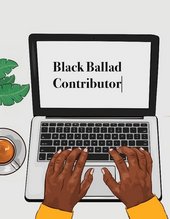Following the release of my debut book, Dyslexia and Me: How to Survive and Thrive If You’re Neurodivergent, I have spent a lot of time reflecting on who I am, what I have achieved and what I can do to help Black women like me transition from ‘survival mode’ to ‘thrival mode’. Before I share my tips on how I began to make this transition, I’d like to introduce myself to you.
I’m Onyinyewchukwu Udokporo, everyone calls me Onyinye. I’m a Black British Woman who is also proudly Nigerian (Igbo). I’m from Edmonton, North London and I’m dyslexic. I was fortunate enough to be diagnosed with dyslexia as a child, aged 11.
I say fortunate because sadly, diagnosis is a privilege that so many people cannot access or afford. Life pre and post diagnosis has had difficult moments. Pre-diagnosis, I couldn’t read, write or spell properly. It always took me double the amount of time to complete a task.
I didn’t have much confidence, which later manifested into anxiety and irritable bowel syndrome (IBS). I am still learning how to manage the latter today.
I often sit and remember the look of worry in my mother’s eyes whilst she cuddled me in the evenings after my failed attempts to read the books we collected from the local library. It’s hard to forget my parent’s sighs after reading my school reports, which detailed my worrying inability to write a coherent sentence.
